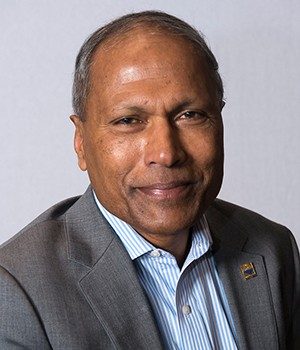
Talk with them to learn what drives them and what challenges their location faces. With an international team, clarity in communication becomes even more important. In the event of a language barrier, strive for clarity without being condescending. It’s important to understand their cultural background, as certain phrases or responses that may be expected at home can be misunderstood abroad. Be frank and ensure alignment in objectives and criteria, so nothing gets lost in translation. Set regular meetings to ensure alignment on tasks while giving them the freedom to implement it in a way that best suits their location.

Working with international direct reports is certainly more challenging. In addition to setting clear goals, building trust and establishing proper communication channels, one should be mindful about differences in culture and language. A face-to-face all-day team workshop to get to know each other, set goals, discuss work processes and communication channels, would be ideal. In the COVID era, one may have to do it with a series of video conferencing. When trust is built, and cultural and communication issues are properly managed, there should be little difference between international and domestic teams.

Today we live in a world where so much work is done across the globe by many of us. It is not uncommon for folks to live in several different time zones and for managers to take care of their direct reports can be challenging. But technology has come to our rescue and I am sure we all are taking advantage of it. Video calls will not be a substitute for in person meetings, but it can be used effectively to set up goals, project schedules and manage the work progress. However, managers should be sensitive and respect the personal and family situations of their direct reports in these communications. For example, if a manager lives in west coast of USA and their direct reports are in Asia, meetings may start early in the morning or later in the night, hence balancing business and personal needs become very critical. These issues can be overcome by proper planning and scheduling meetings/calls in advance.

Effective and productive teams benefit from inclusive participation from both domestic and international employees. In recent times, global team structures are becoming common, with the teams comprising members from different parts of the world having diverse backgrounds, cultures and skillset. For global teams to succeed, it is imperative to empower different parts of the team, particularly the ones which are not in key centers of the organization. Having them share responsibility, be part of critical path workstreams, and exposure to senior leadership helps in effective inclusion within the organization. Sensitivity to different cultures, traditions, and work-life balance norms is important. Especially during the times when travel restrictions are in place, effective, clear, and frequent communication regarding core values, work expectations, support to resolve work/personal issues is critical.
This article has been edited for length and clarity. The opinions expressed in this article are the author's own and do not necessarily reflect the view of their employer or the American Chemical Society.
ACS Career Consultants are experts and leaders working in the field of chemistry who have volunteered to support other ACS members’ career development through one-on-one career counselling. They can stimulate your thinking, ask important career planning questions to help clarify goals, provide encouragement, teach strategies for making meaningful career decisions, and aid you in your job search. Connect with an ACS Career Consultant today!
Copyright 2020 American Chemical Society (All Rights Reserved)








